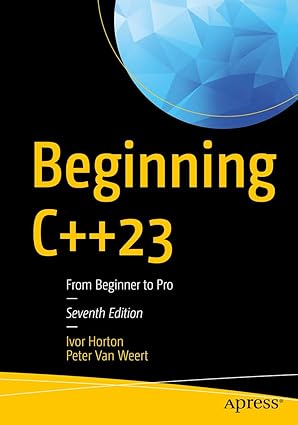This C program is designed to compute the factorial of a user-entered integer. The program employs a for loop to calculate the factorial and then displays the result. The user can continue inputting positive integers to obtain their factorials until a non-integer input is provided which terminates the program.

Kickstart your coding journey with Beginning C++23 – the ultimate guide to mastering the latest in modern C++ programming!
View on Amazon
To better understand this program and enhance your knowledge of C programming, you may find the following resources helpful:
- C Programming Absolute Beginner’s Guide (3rd Edition) by Perry and Miller
- This page provides C programming tutorials to reinforce your understanding of C programming





